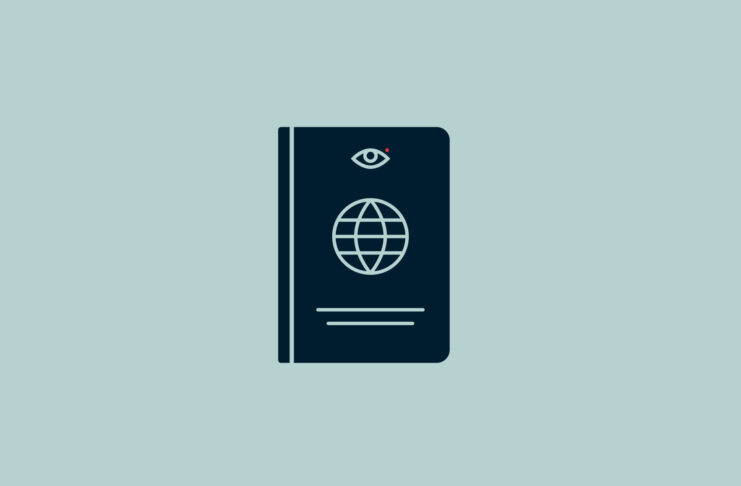Note: This post was originally published on December 5, 2018
Survey shows 49% trust Facebook Portal least as a brand. Two-thirds (66%) of respondents most likely to purchase Amazon Alexa devices and only 11% Facebook Portal.
ExpressVPN, a leading VPN provider, today announced the results of a new Smart Home Holiday Survey* (fielded Nov. 27, 2018) showing that while smart home devices and speakers are topping holiday shopping lists, associated privacy concerns are on the forefront of consumers’ minds.
Brand trust linked to purchase intent
Facebook in particular is a target of privacy worries, with 85% of survey respondents indicating that concerns about Facebook Portal’s potential invasion of personal privacy would impact their purchase decisions, with 42% indicating the impact would be significant. Nearly two in five (38%) said they would be very concerned that Facebook would listen in on their conversations and use this information to target them with ads; in contrast, 28% said the same of Amazon.
Facebook Portal was also the least trusted smart home brand overall, with 49% naming it as the brand they would least trust to handle personal data. Only 17% named Amazon Alexa, 15% Google Assistant, and 14% Apple.
These findings are reflected in purchase intent indicators, with six times more respondents preferring Amazon to Facebook for smart home products. When asked which smart home brands’ products they were most likely to purchase or had already purchased for their home this holiday season, consumers responded as follows:
- 66% — Amazon
- 55% — Google
- 32% — Apple
- 30% — Samsung
- 11% — Facebook Portal
- 8% — Nest
- <1% — I’m not familiar with any of these brands(Respondents were able to select more than one option.)
Majority concerned about smart home device privacy, yet many still plan to buy
Two thirds of Americans are concerned that having a smart speaker or voice assistance device leaves them susceptible to having hackers listening to their conversations and 55% are concerned the device manufacturer may be listening.
However, the majority of Americans either already own or plan to purchase a smart speaker or voice assistance device. When asked if they had purchased or plan to purchase one for their home this holiday season, respondents said:
- 36% — Yes, I plan to purchase one (or more)
- 11% — Yes, I already have purchased one (or more)
- 11% — No, I already own one (or more) and don’t plan to purchase another
- 42% — No, I don’t own any and I don’t plan to purchase any
Consumers ready to return or even throw out devices that violate their privacy
The survey finds that more than one third (35%) would return a device they purchased if they learned it could be used to actively monitor private conversations, and 9% said they would throw it away. Others would keep the device but turn off the device’s microphone (41%) or disconnect it from the internet (17%).
Some consumers are already taking active measures to protect their privacy and security, including:
- 25% — Ensuring that the devices use encryption for all data transfers
- 23% — Turning off or unplugging devices when not in use
- 28% — Turning off microphones when not in use
- 23% — Covering cameras when not in use
“One in five U.S. households have an internet-connected device with a microphone or camera, and millions more will be joining them this holiday season. No doubt tech and advertising giants are salivating over the potential data mining opportunity, and hackers are highly motivated to find security vulnerabilities,” noted Harold Li, vice president, ExpressVPN. “Holiday shoppers buying these devices will need to take smart steps to feel more confident about their privacy when the device is running in their homes.”
Li and ExpressVPN shared six key privacy and security tips for smart home devices:
- Turn off the microphone and/or camera whenever you’re not using them, or even unplug the device completely.
- If there’s a camera, cover it up whenever you’re not using it, like you would your laptop webcam.
- Review privacy policies and terms of service, and be sure to opt out of any optional privacy-busting “features.”
- Connect the devices to a router with a VPN to ensure that all traffic is encrypted, making it harder for hackers and spies to see what data is being transmitted or tamper with your devices.
- While not widely supported, ethernet (wired) connectivity is preferable to Wi-Fi for security, as it’s much harder to intercept.
- As with any gadget: regularly check for and install the latest software updates
*Methodology
A national online survey of 1,010 U.S. consumers, ages 18+ was conducted by Propeller Insights, on November 27, 2018, on behalf of ExpressVPN. All survey responses were nationally representative to the U.S. population for age, gender, region and ethnicity. The age ranges include Millennials (aged 18–34), Gen X (aged 35–54), Baby Boomers (aged 55–74) and Seniors (aged 75+). The maximum margin of sampling error was +/- 3 percentage points with a 95 percent level of confidence.



























